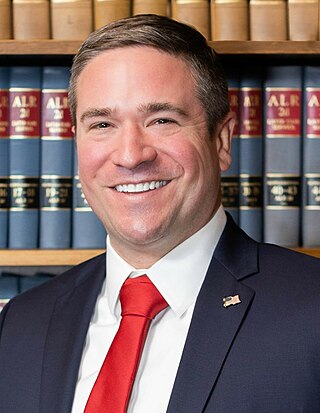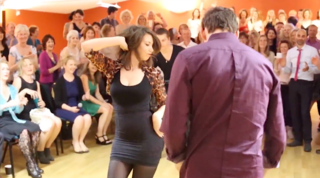Related Research Articles

The Crown Prosecution Service (CPS) is the principal public agency for conducting criminal prosecutions in England and Wales. It is headed by the Director of Public Prosecutions.

A prosecutor is a legal representative of the prosecution in states with either the common law adversarial system or the civil law inquisitorial system. The prosecution is the legal party responsible for presenting the case in a criminal trial against the defendant, an individual accused of breaking the law. Typically, the prosecutor represents the state or the government in the case brought against the accused person.

The Crown Office and Procurator Fiscal Service is the independent public prosecution service for Scotland, and is a Ministerial Department of the Scottish Government. The department is headed by His Majesty's Lord Advocate, who under the Scottish legal system is responsible for prosecution, along with the sheriffdom procurators fiscal. In Scotland, virtually all prosecution of criminal offences is undertaken by the Crown. Private prosecutions are extremely rare.

A procurator fiscal, sometimes called PF or fiscal, is a public prosecutor in Scotland, who has the power to impose fiscal fines. They investigate all sudden and suspicious deaths in Scotland, conduct fatal accident inquiries and handle criminal complaints against the police. They also receive reports from specialist reporting agencies such as His Majesty's Revenue and Customs.
The New Hampshire Department of Justice (NHDOJ) is a government agency of the U.S. state of New Hampshire. The department is led by the Attorney General of New Hampshire, currently John Formella. NHDOJ headquarters are located at 33 Capitol Street in Concord.
Crown prosecutors are the public prosecutors in the legal system of Australia. In Western Australia, they are referred to as State prosecutors.
Nola Therese Fraser is an Australian small business owner, former Registered Nurse and former Liberal Party and Independent candidate for the New South Wales state seat of Macquarie Fields.

The Care Inspectorate is a scrutiny body which supports improvement. They look at the quality of care in Scotland to ensure it meets high standards. Where improvement is needed, they support services to make positive changes. The Care Inspectorate was set up in April 2011 by the Scottish Government as a single regulatory body for social work and social care services, including child protection and the integration of children's services. The new organisation took on work in these areas previously carried out by:
The Solicitors Regulation Authority (SRA) is the regulatory body for solicitors in England and Wales.

The Office of the Missouri Attorney General was created in 1806 when Missouri was part of the Louisiana Territory. Missouri's first Constitution in 1820 provided for an appointed attorney general, but since the 1865 Constitution, the Attorney General has been elected. As of January 2023, there have been 44 attorneys general in Missouri.
The Nurses and Midwives Tribunal is a former tribunal that was established in the Australian state of New South Wales which dealt with appeals and complaints of professional misconduct by nurses and midwives. The tribunal generally heard matters after the Nurses and Midwives Board has made a decision or a professional association had referred an issue to the tribunal. The tribunal heard matters in an informal manner in an attempt to do justice in the matter. The tribunal also conducted inquiries into complaints referred by the New South Wales Health Care Complaints Commission.
A private prosecution is a criminal proceeding initiated by an individual private citizen or private organisation instead of by a public prosecutor who represents the state. Private prosecutions are allowed in many jurisdictions under common law, but have become less frequent in modern times as most prosecutions are now handled by professional public prosecutors instead of private individuals who retain barristers.
The Physiotherapists Tribunal is a former tribunal established in the Australian state of New South Wales which dealt with appeals and complaints of professional misconduct by physiotherapists.
The Australian Vaccination-risks Network Inc., formerly known as the Australian Vaccination-Skeptics Network (AVsN), and before that known as the Australian Vaccination Network (AVN), is an Australian anti-vaccination pressure group registered in New South Wales. As Australia's most controversial anti-vaccination organisation, it has lobbied against a variety of vaccination-related programs, downplayed the danger of childhood diseases such as measles and pertussis, championed the cause of alleged vaccination victims, and promoted the use of ineffective alternatives such as homeopathy.

Barbara O'Neill is an Australian alternative medicine personality, known for promoting dangerous and unsupported alternative medical practices and ideas. She previously presented these treatments at alternative medicine schools, wellness retreats, and Seventh-day Adventist Churches despite not having any recognised qualifications and failing nursing training. She is married to Michael O'Neill, the founder of the Informed Medical Options Party, an anti-vaccination and anti-fluoride political group.

The Constitution itself anchors the role of the Director of Public Prosecutions in Kenya. The Office of the Director of Public Prosecutions (ODPP) is the National Prosecuting Authority in Kenya. The Constitution mandates it to prosecute all criminal cases in the country.

Universal Medicine, abbreviated as UniMed or UM, is a cult founded and led by Serge Benhayon, a former bankrupt tennis coach from New South Wales (NSW) Australia who has no medical qualifications. It sells "Esoteric healing" products, music, publications, workshops and courses. None of the healing modalities are evidence based or have been proven effective by scientific research. Uruguayan-born Benhayon founded the group in 1999 after receiving what he described as an "energetic impress" while on the toilet. A NSW Supreme Court jury found it was true to say that he leads a "socially dangerous" and "socially harmful cult", "intentionally indecently touched" clients and "is a charlatan who makes fraudulent medical claims". In a British court ruling, UM was found to be "a cult with some potentially harmful and sinister elements".
The Law Enforcement Conduct Commission oversights, monitors and investigates allegations of serious misconduct by the NSW Police Force (NSWPF) and NSW Crime Commission (NSWCC). It was set up on 1 July 2017 to replace the Police Integrity Commission and the Police and Compliance Branch of the Office of the Ombudsman
The Australian Health Practitioner Regulation Agency (AHPRA), infrequently spelt as the Australian Health Practitioners Regulation Agency is a statutory authority founded in 2010 which is responsible, in collaboration with the Medical Board of Australia, for registration and accreditation of health professionals as set out in the Australian legislation called the National Registration and Accreditation Scheme. As of 2018, approximately 586,000 health professionals were registered with the AHPRA, containing 98,400 medical practitioners (which includes general practitioners, medical specialists and some hospital workers), and 334,000 nurses and midwives. This rose to 825,720 registered health professionals in 2021.
References
- 1 2 Health Care Complaints Act 1993 (No 105) (NSW)
- ↑ "List of prohibition orders in force". Health Care Complaints Commission. n.d.
- ↑ "Public Statement Warnings". Health Care Complaints Commission. n.d.
- ↑ Raper, Ashleigh (8 May 2017). "NSW healthcare complaints on the rise, system under 'enormous pressure'". ABC News . Australia.
- ↑ Duff, Eamon (20 June 2014). "Health Care Complaints Commission in Crisis". The Sydney Morning Herald . Retrieved 13 January 2015.
- ↑ "Annual Reports". Health Care Complaints Commission. n.d.